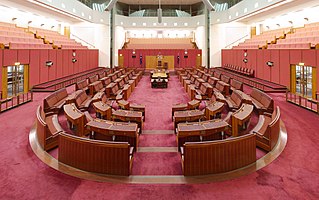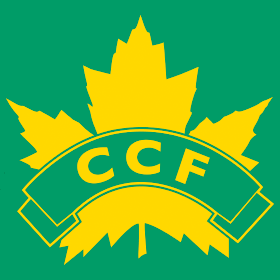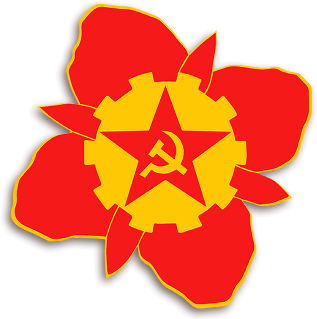See also
- Labour Independent Group, a British group in the 1940s
The Independent Labour Party was a socialist political party in Britain.
Independent Labour Party may also refer to:

The Transvaal Colony was the name used to refer to the Transvaal region during the period of direct British rule and military occupation between the end of the Second Boer War in 1902 when the South African Republic was dissolved, and the establishment of the Union of South Africa in 1910. The borders of the Transvaal Colony were larger than the defeated South African Republic. In 1910 the entire territory became the Transvaal Province of the Union of South Africa.
The Progressive Party of Canada, formally the National Progressive Party, was a federal-level political party in Canada in the 1920s until 1930. It was linked with the provincial United Farmers parties in several provinces, and it spawned the Progressive Party of Saskatchewan, and the Progressive Party of Manitoba, which formed the government of that province. The Progressive Party was part of the farmers' political movement that included federal and provincial Progressive and United Farmers' parties.

In parliamentary systems, politicians are said to cross the floor if they formally change their political affiliation to a different political party than which they were initially elected under. In Australia though, this term simply refers to Members of Parliament (MPs) who dissent from the party line and vote against the express instructions of the party whip while retaining membership in their political party.
MLP may refer to:
There have been various groups in Canada that have nominated candidates under the label Labour Party or Independent Labour Party, or other variations from the 1870s until the 1960s. These were usually local or provincial groups using the Labour Party or Independent Labour Party name, backed by local labour councils made up of many union locals in a particular city, or individual trade unions. There was an attempt to create a national Canadian Labour Party in the late 1910s and in the 1920s, but these were only partly successful.
The Social Democratic Party was a social democratic political party in Canada founded in 1911 by members of the right wing of the Socialist Party of Canada, many of whom had left the organisation in May 1907 to form the Social Democratic Party of British Columbia. These members were dissatisfied with what they saw as that party's rigid, doctrinaire approach. As opposed to the Socialist Party of Canada, the SDP allowed minority language groups ample room for self-determination, which led to a perception that the ethnic groups were more dominant than the overarching SDP. When the authorities cracked down on ethnic groups during the 1918 wave of repression, many of the individual ethnic chapters were shut down.

James Shaver Woodsworth was a pre–First World War pioneer of the Canadian Social Gospel, a Christian religious movement with social democratic values and links to organized labour. He was a long-time leader and publicist in the movement and was an elected politician under the label, serving as MP from 1921 to his death in 1942. He helped found the Co-operative Commonwealth Federation (CCF), a forerunner of today's New Democratic Party (NDP), in 1932.
NAC may refer to:
The Winnipeg Labour Party was a reformist organization in Winnipeg, Manitoba, Canada, representing labour interests. Founded in 1896, it was based on an earlier Winnipeg organization known as the Independent Labour Party.
The Socialist Party of Manitoba (SPM) was a short-lived social democratic political party launched in 1902 in the Canadian province of Manitoba. The organisation advanced a moderate programme of social reform legislation. In 1904 the SPM became one of the constituent units founding the Socialist Party of Canada, an organisation which continued until 1925.
The Labour Representation Committee was a reformist labour organization in Manitoba, Canada, and was the ideological successor to groups such as the Winnipeg Labour Party, the Independent Labour Party and the Manitoba Labour Party. It was founded in late 1912, and was based on a British organization of the same name.

The Co-operative Commonwealth Federation (Manitoba) (CCF), known informally as the Manitoba CCF, was a provincial branch of the national Canadian party by the same name. The national CCF was the dominant social-democratic party in Canada from the 1930s to the early 1960s, when it merged with the labour movement to become the New Democratic Party. The Manitoba CCF, created in 1932, played the same role at the provincial level.
The 1922 Manitoba general election was held on July 18, 1922 to elect Members of the Legislative Assembly of the Province of Manitoba, Canada. The United Farmers of Manitoba won a narrow majority in the legislature.

General elections were held in South Africa on 15 September 1910 to elect the 121 members of the House of Assembly. They were the first general election after the Union of South Africa was created on 31 May 1910.
The Socialist Party of British Columbia (SPBC) was a provincial political party in British Columbia, Canada, from 1901 to 1905. In 1903, the SPBC won seats in the Legislative Assembly of British Columbia.

James Thomson "JT" Bain was a socialist and syndicalist in colonial South Africa.
Labour Party or Labor Party is a name used by many political parties. Many of these parties have links to the trade union movement or organised labour in general. Labour parties can exist across the political spectrum, but most are centre-left or left-wing parties. The largest Labour parties, such as the UK Labour Party, Australian Labor Party, New Zealand Labour Party and Israeli Labor Party, tend to have a social democratic or democratic socialist orientation.

The Communist Party of Canada (Marxist–Leninist) is a Canadian federal political party founded by Hardial Bains in 1970. The CPC(M-L) has been registered with Elections Canada as the Marxist–Leninist Party of Canada (MLPC) since 1974 as the party is prohibited from using the Communist Party name in Canadian elections to avoid confusion among voters. The party developed separately and independently from the Communist Party of Canada (CPC), originating among students and intellectuals in Canada during the 1960s. After a period of alignment with Maoism and China, the CPC(M-L) pursued a Hoxhaist, pro-Albanian line until the early 1990s. At present, the party directs most of its public support to Cuba and North Korea.